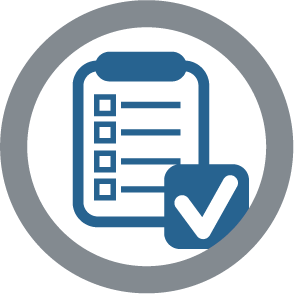3 Epic Staffing Options You Probably Haven’t Considered

 Properly staffing for an Epic implementation can be as much art as science. Proper gap analysis and precise planning are paramount, but augmenting your fundamental preparations with alternative staffing options can help you create an implementation masterpiece that blends flexibility, efficiency and savings.
Properly staffing for an Epic implementation can be as much art as science. Proper gap analysis and precise planning are paramount, but augmenting your fundamental preparations with alternative staffing options can help you create an implementation masterpiece that blends flexibility, efficiency and savings.
You may initially decide that you do not need to hire healthcare IT consultants, or not justify the perceived expense. But relying solely on your internal team to implement your new Epic electronic health record (EHR) system can cause project delays, cost overruns and a diminished return on your investment by impeding the speed and quality of your implementation.
However, most internal healthcare IT departments are already understaffed. In fact, more than 90 percent of the approximately 130 healthcare providers that participated in the 2014 HIMSS Workforce Survey responded that they faced barriers in fully staffing their environments.
Overestimating the abilities of the resources you do have can exacerbate the staffing shortage. Even the most capable internal teams lack the expertise and experience of implementing Epic which consultants bring. Epic consultants apply best practices to resolving common challenges like customizing workflows and integrating with other technologies.
Hiring Epic implementation specialists need not be cost-prohibitive or confining. Consider these 3 alternative staffing options when implementing your Epic system.
1) Buy Blocks of Time
More than 60 percent of the provider representatives that participated in the HIMSS survey had scaled back an IT project due to a staffing shortage, or planned to do so. The implications, they stated, included inefficiencies that caused end-user frustration and dissatisfaction, disruptions in patient care, increased reliance on manual processes and concerns of potential security breaches. Delays in Epic implementations can also be costly in terms of lost federal reimbursement dollars for Meaningful Use (MU) attainment and compromised efficiency in day-to-day operations.
Flexibility in allocating consulting hours can keep your projects moving without compromising their effectiveness. Ask your Epic EHR consulting firm to buy blocks of time that you can spread among implementation phases and resources.
Consultants typically want large time commitments of time to keep them busy but if your firm has an ample talent pool they can keep individual resources busy with multiple projects from different clients. Put another way, they can keep a consultant working 40 hours a week without having you foot the whole bill if you do not need them full-time.
For example, you may not need to pay a consultant to work 40 hours a week for a month in the planning phase if you can use internal team to fulfill some of the same responsibilities. But see if you can buy 1,000 hours for the entire implementation and set aside the time that your internal team saves you in planning to be used later, perhaps in testing when you do not have properly trained staff. Similarly, you may choose to have an IT consultant working remotely to perform testing rather than paying to be on-site if the work does not require their presence. In doing so, you are only paying for the help you need, when and where you need it during your Epic implementation.
2) Recruit Local Healthcare IT Consultants
Half of the providers that HIMSS surveyed online in mid-2014 stated that hiring consultants was too expensive. Hiring local consultants can save you money in travel, onboarding and resource management expenses.
Given that travel expenses alone can add 20 percent to a consultant's cost, ask your Epic implementation partner to organize a local job fair specifically for positions relevant to your organization. This will help you reach more candidates quickly, particularly if they invite clinicians, consultants and other local talent looking for opportunities. Request that your partner interview candidates, check references, negotiate compensation and cover all other aspects of recruiting.
You can also ask your partner to onboard new hires that they recruit through the event. Stipulate that they conduct criminal background checks, administer drug screens, dispense immunizations and perform other necessary pre-employment tasks.
Quickly scaling up your implementation team, even locally, could also be costly in terms of time, particularly for large projects. Consider, for example, the impact of adding 100 full-time employees over the course of several months, or just weeks.
Having your Epic implementation partner handle functions like logistics, deployment and communication can save your human resource department time and your IT department money by optimizing your staffing for Go-Live. Think one-stop shopping for meeting your staffing needs for EHR implementation.
3) Target & Train Non-Healthcare IT Talent
Even the most successful job fair may not be enough for you to fully staff your EHR implementation if you limit recruiting to experienced candidates. Almost 70 percent of providers in the HIMSS survey cited a lack of qualified talent locally as the biggest impediment to being fully staffed.
Augment your staffing by training non-healthcare IT talent to use and implement your EHR system. Ask your Epic implementation partner to create training programs for new IT graduates and other professionals who lack experience in healthcare. Request that your implementation partner train talent to use your technologies and follow your processes so that they can be at-the-elbow support during Go-Live.
A strong training program could also help you attract talent for permanent positions because they value continuous learning and career advancement. Training adaptable, quick learners in the skills that you need can help you increase the return on investment in your EHR by enhancing long-term efficiency. The more embedded they are within your systems, processes and culture, the more productive your team.
Getting to Know You
Whether traditional staffing augmentation meets your needs or one of the three creative solutions listed above, choose a partner who demonstrates proven expertise in recruiting, onboarding and managing implementations with the ability to roll top Epic talent from project-to-project, thereby providing you with the best consultants available. These resources have already been vetted and their skills and experience confirmed. They bring varied strengths in areas like project management, testing, training and Go-Live activation support.
Also, the more the partner works with you, the better they can choose resources to support your mission and processes. The consultants, in turn, become acclimated to “your way” of doing business. This allows you to leverage a partner’s economies of scale to your benefit. You also get loyal “transparent” members of your organization. This increased engagement improves productivity, particularly over time.
Unless your internal team has implemented numerous EHR systems across multiple organizations similar to yours, they do not have the breadth of expertise and experience that health IT consultants bring to your project. Having resources that have previously resolved a problem that you encounter during implementation can be invaluable in running a smooth EHR implementation.
Being creative in how you hire and deploy those resources can help you save money, meet deadlines and manage your talent more effectively—like a true work of art.


